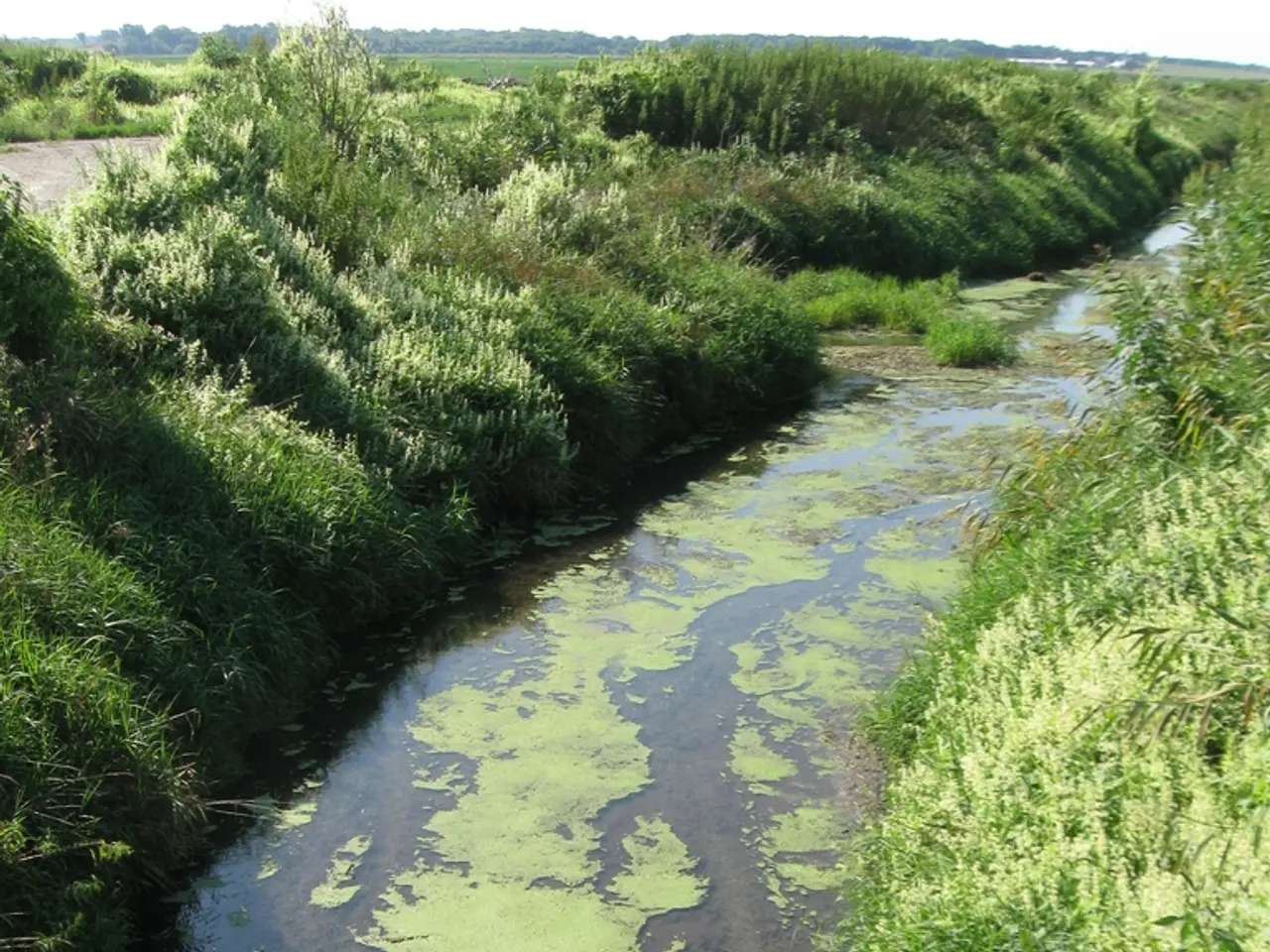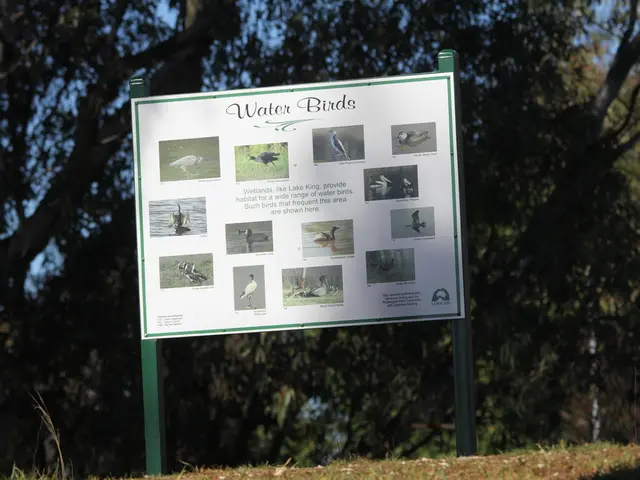Reused Bathwater Set to Support Summer Irrigation by 2035
Royal Horticultural Society Embraces Grey Water for Gardens
In response to the predicted drier summers and the growing water deficit, the Royal Horticultural Society (RHS) is investigating the role of grey water in maintaining its gardens. The organization has appointed a Senior Water Scientist and a Water Reduction Officer to explore the use of grey water in gardens.
The RHS is not only looking inward but also showcasing the benefits of grey water use in gardens at the RHS Chelsea Flower Show this year. Gardens featuring clever rainwater management are on display, with rain gardens being created across the five RHS sites to hold water for longer, manage run-off, and minimize flood risk.
One such example is the rainwater collection and storage system at RHS Hilltop at RHS Garden Wisley, where rainwater is harvested and directed to the purpose-built Clear Lake for reuse. This initiative is part of the RHS's aim to minimize the amount of water taken from the environment across all its gardens by 2030.
Other measures include improved leak detection, use of precision irrigation methods, and selection of plants that are ideally suited to local conditions. The RHS estimates that 60 litres of grey water are produced per person within homes each day and can be recycled in gardens.
Grey water from sinks, baths, showers, and washing can lessen the need for mains water and stored rainwater. However, it's important to note that grey water should be stored for no more than 24 hours to minimize bacterial growth. Pollutants in grey water can clog irrigation systems, so it should be applied by watering can.
The RHS recommends using grey water on ornamentals but not edible crops. Research will focus on finding plant and substrate combinations to remove potential pollutants and making the movement of water from the house to the garden easier.
At the RHS Chelsea Flower Show, the Water Aid Garden includes a rainwater harvesting pavilion, while the National Autistic Society Garden channels rainwater away from the main terrace via a 'waterfall roof' which feeds into a mossy dell.
The RHS continues to emphasize the importance of being creative in maintaining green spaces due to the growing water deficit. By 2035, the RHS predicts that grey water will be a significant source of water for gardens. The organization's commitment to sustainable gardening practices is a promising step towards remedying the water deficit.
Despite the progress made, the search did not yield the name of the Senior Water Scientist at the Royal Horticultural Society responsible for researching and using grey water in the garden. Nonetheless, the RHS's dedication to exploring this alternative water source for gardens is evident in their ongoing initiatives.







